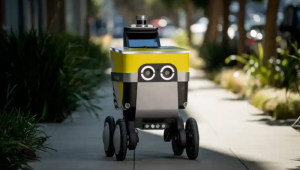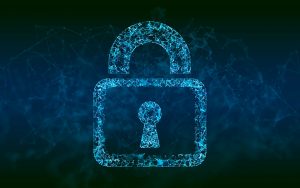Breaking Analysis: Voting Security – Could Your Vote Be Compromised?
Election Day is finally here and the question may not be who you voted for, but how secure your vote was. There are many editorials coming out that are questioning the security of our votes at a technological level, with two main categories under scrutiny: fraud prior to pulling the lever and fraud within the voting machine itself.
Harmony Tapper wrote a post at SiliconANGLE that laid out the concerns about voter roll security, stating that overall, the topic of voter security is largely ignored. SiliconANGLE founding editor Mark”Rizzn” Hopkins weighed in with his views. He noted that there are state by state variances as to what qualifies as a vote, such as some states don’t require voters to have an I.D. Other states, such as Ohio, removed registered voters with suspect sounding names, like “John Adolf Hitler” and “Barney the Dinosaur.” Without a free sanity check at the polling doors for these voters, Hopkins says it’s hard to tell if the integrity of the vote would be affected. It comes down to the security of the polling place itself and whether the workers are paying attention.
Another possible fraud area is if hackers can get access to voter rolls and add, change or remove names, resulting in eligible voters being unable to vote and vice-versa. But the real hot button issue, according to Hopkins, is the security of the electronic voting machines, mainly due to past concerns about voting machines in battleground states like Ohio.
Hopkins said that it’s likely the way you would have to attack [a voting machine] in 2004 is
probably not much different than how it would be done today, with the components of an interface and a database still present. Hopkins painted a picture as to how one might try to
compromise a voting machine by switching out the database and either pre-loading the voting machine with a false vote tabulation and having a script that runs at a set time to switch out the database, or doing it after voting hours were over. Regardless, there would be a forensic trail at the file system level.
Between these two fraud areas, Hopkins sees voter roll security as a larger threat, simply
because voting machine security is an almost implausible conspiracy threat, in that it would
require too many participants and details to carry out. He summed it up by saying, “When you have false names showing up on voter rolls and a history of bad security at state level governments due to a lack of a national security template . . . that’s where your most likely attack vector is going to be.” See the whole segment with Kristin Feledy and Mark “Rizzn” Hopkins on the Morning NewsDesk show.
A message from John Furrier, co-founder of SiliconANGLE:
Your vote of support is important to us and it helps us keep the content FREE.
One click below supports our mission to provide free, deep, and relevant content.
Join our community on YouTube
Join the community that includes more than 15,000 #CubeAlumni experts, including Amazon.com CEO Andy Jassy, Dell Technologies founder and CEO Michael Dell, Intel CEO Pat Gelsinger, and many more luminaries and experts.
THANK YOU













